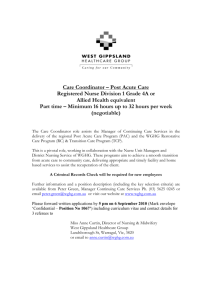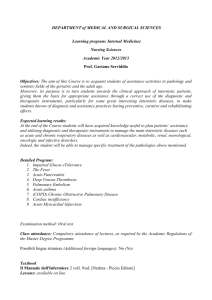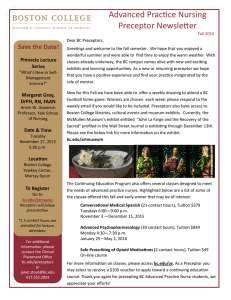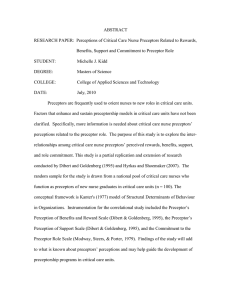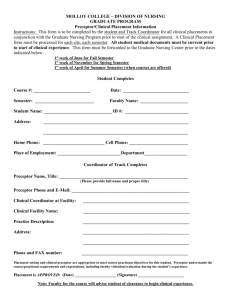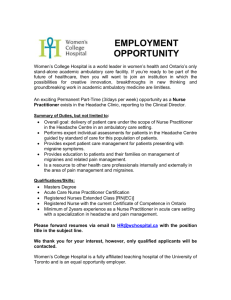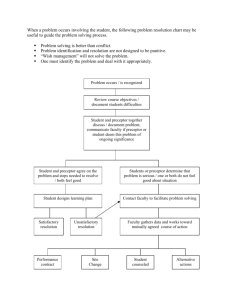University of South Alabama, College of Nursing
advertisement
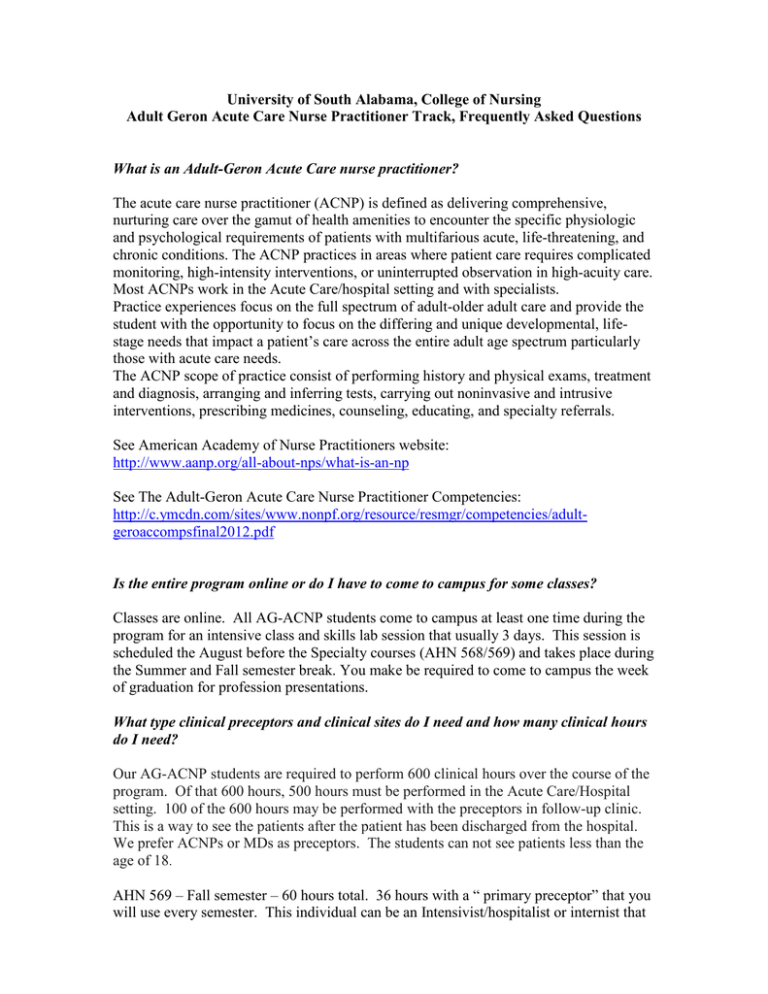
University of South Alabama, College of Nursing Adult Geron Acute Care Nurse Practitioner Track, Frequently Asked Questions What is an Adult-Geron Acute Care nurse practitioner? The acute care nurse practitioner (ACNP) is defined as delivering comprehensive, nurturing care over the gamut of health amenities to encounter the specific physiologic and psychological requirements of patients with multifarious acute, life-threatening, and chronic conditions. The ACNP practices in areas where patient care requires complicated monitoring, high-intensity interventions, or uninterrupted observation in high-acuity care. Most ACNPs work in the Acute Care/hospital setting and with specialists. Practice experiences focus on the full spectrum of adult-older adult care and provide the student with the opportunity to focus on the differing and unique developmental, lifestage needs that impact a patient’s care across the entire adult age spectrum particularly those with acute care needs. The ACNP scope of practice consist of performing history and physical exams, treatment and diagnosis, arranging and inferring tests, carrying out noninvasive and intrusive interventions, prescribing medicines, counseling, educating, and specialty referrals. See American Academy of Nurse Practitioners website: http://www.aanp.org/all-about-nps/what-is-an-np See The Adult-Geron Acute Care Nurse Practitioner Competencies: http://c.ymcdn.com/sites/www.nonpf.org/resource/resmgr/competencies/adultgeroaccompsfinal2012.pdf Is the entire program online or do I have to come to campus for some classes? Classes are online. All AG-ACNP students come to campus at least one time during the program for an intensive class and skills lab session that usually 3 days. This session is scheduled the August before the Specialty courses (AHN 568/569) and takes place during the Summer and Fall semester break. You make be required to come to campus the week of graduation for profession presentations. What type clinical preceptors and clinical sites do I need and how many clinical hours do I need? Our AG-ACNP students are required to perform 600 clinical hours over the course of the program. Of that 600 hours, 500 hours must be performed in the Acute Care/Hospital setting. 100 of the 600 hours may be performed with the preceptors in follow-up clinic. This is a way to see the patients after the patient has been discharged from the hospital. We prefer ACNPs or MDs as preceptors. The students can not see patients less than the age of 18. AHN 569 – Fall semester – 60 hours total. 36 hours with a “ primary preceptor” that you will use every semester. This individual can be an Intensivist/hospitalist or internist that rounds in the acute care setting. You will also do 8 hr observation days in the following clinics: ENT, Ophthalmology, and GYN. AHN 573 – A total of 180 hours. 60 hrs with the “primary preceptor” and rotations in cardiology, pulmonology, neurology. AHN 575 – Summer semester – 180 hours total. Rotations with the “Primary preceptor”, and gastroenterology, endocrinology, or nephrology. CMN 576 – Fall semester – 180 hours total. Rotations with “primary preceptor” and Emergency department. You will also choose between Infectious Disease, Ortho, or Hem/onc Can I complete clinical hours where I live and who arranges clinical sites? The majority of AG-ACNP students complete clinical hours in their home communities or within driving distance of their home communities. Students in remote areas have sometimes had to travel outside their communities to find clinical sites. Students are responsible for finding appropriate clinical sites. If a student cannot locate a clinical site in their home area, faculty is often able to provide names of nearby sites that have been used by previous FNP students. Specialty tracks within the College of Nursing’s graduate program require a practice component. Although faculty assists students in locating appropriate practice/clinical sites, it is ultimately the student’s responsibility to secure a site and preceptor if indicated. Students who are unsuccessful in being accepted by an agency in their home community may have to travel to another area to complete practice requirements or withdraw from the program. Please review the list of clinical affiliations found under the “Current Student” tab on the College of Nursing Web Site at http://www.southalabama.edu/colleges/con/students/clinicalagencies.html. If there is not a clinical site listed near you or you are interested in a site not listed, negotiations should be initiated as soon as you begin the program through the Track Coordinator for your specialty. I see names of clinical affiliation sites for: http://www.southalabama.edu/colleges/con/students/clinicalagencies.html but none of the sites are near me. What does this mean? The affiliation list on the webpage is simply a list of clinical agencies with which USA has a long term affiliation agreement. Most AG-ACNP students use clinical sites that are not on the website list. The contract process is just a little different for sites that are not on the list and will be explained by faculty after students are enrolled in a clinical course. Can I work full time and do well in the AG-ACNP program? AG-ACNPs work alongside physicians and do many of the same things that physician do. AG-ACNP students must learn to provide this high level care for both genders and patients in the acute care setting, so a great deal of planned study time is necessary to do well in the program. There will be exams in the didactic courses along with written assignments. The clinical courses include written assignments such as clinical notes and logs long with the required hours for that semester. Many AG-ACNP students work full time while they are taking core and support courses. Once enrolled in the clinical courses, many students find it necessary to cut back to part time work. Is there a “state board” test for FNPs? Rules and regulations for practicing AG-ACNPs are determined by state boards of nursing so they vary, somewhat, from state to state, but most states require that all NPs pass one of two national certification examinations. AG-ACNP certification exams are offered by the American Nurses Credentialing Center (ANCC). Program graduates are eligible to sit for either of these exams.
